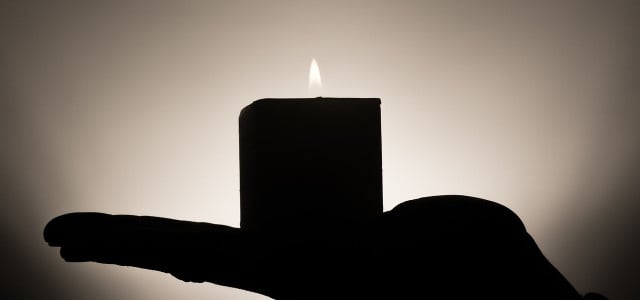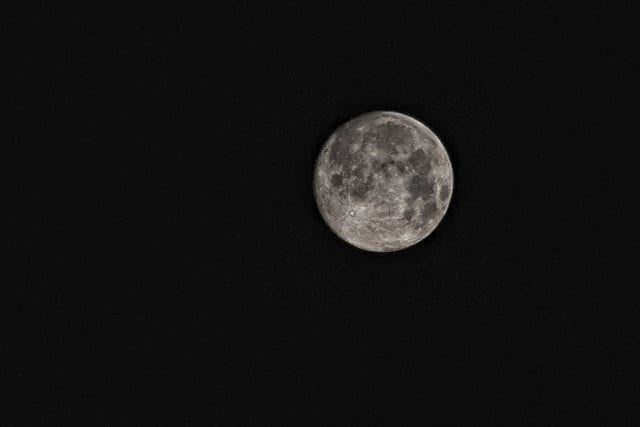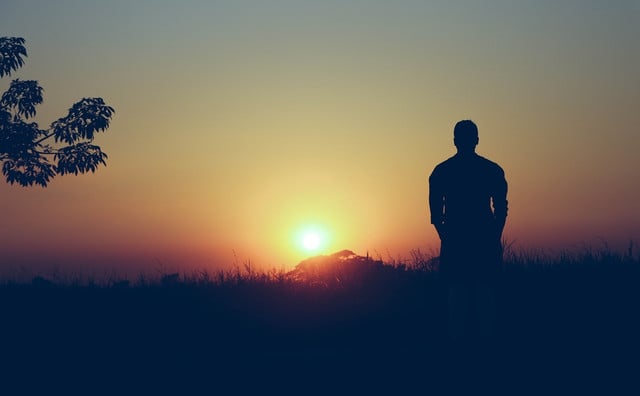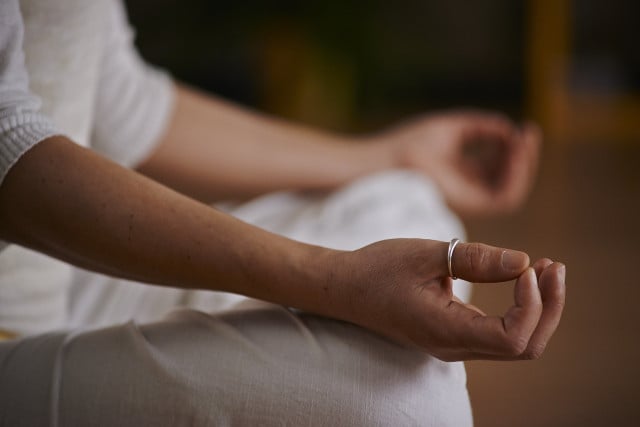
Darkness retreats are a form of self-care vacation where participants spend a period of time in total darkness. This is said to have a variety of positive effects on the body and psyche. But what is it really about?
Darkness retreats, also known as dark therapies, immerse people in absolute darkness for a period of time. The providers of such retreats promise the participants a number of potential benefits for their physical and mental health. These include, for example
- an intensified spiritual experience,
- an improved self-awareness,
-
stress relief,
-
Detoxification,
-
increased creativity as well
- a deeper understanding of oneself.
However, vendor claims are often based on subjective testimonials and personal anecdotes, rather than scientific studies or empirical evidence. There is limited research on this specific area.
The practice of going into complete darkness for long periods of time has been around in some cultures for a long time. In Tibetan Buddhism, for example, it is carried out, but according to the Buddhism teacher Lama Justin, traditionally only by experienced spiritual people.
How does a darkness retreat work?

(Photo: CC0 / Pixabay / PeterDargatz)
You can do a darkness retreat for just one day, or even spend several weeks in darkness. The average value is around five to seven days. All the rooms you use are completely darkened. For example, you have to eat and go to the toilet in the dark. It is important that it is really dark – that is, that the room is not partially lit through a slit under the door or through a light flashing somewhere on a device. Total darkness is very rarely experienced these days, partly because of light pollution.
Sound is also usually excluded as much as possible – because you shouldn’t experience noise on the retreat either. A fresh air shaft, for example, provides fresh air.
Cooking food is difficult in the situation, so food and drinks are usually provided for you in the dark retreat. Based on these solid meals, the time of day can be estimated, which is a point of criticism for some: ideally, one should be completely free of external influences in the Darkness Retreat, which can also include the time of day. You can either find out what you eat from a meal plan before you start, or let yourself be surprised. Most of the providers pay attention to healthy, vegetarian or vegan nutrition, sometimes also in organic quality.
Some people choose to fast during the hours of darkness instead. However, there is no evidence that fasting and a darkness retreat influence each other positively. However, there are generally more things to consider with fasting than with dark therapy. Find out more about popular types of fasting here: Fasting according to Buchinger, interval fasting and water fasting.
How are you supposed to keep yourself busy for several days if you can’t use digital devices, read or play games? If you dare, you can do sports in the dark. However, you should make sure that you have enough space and that you don’t bump into anything. Yoga exercises are great because they rarely require you to move far across the room or jump.
On the one hand, you could, for example, listen to an audio book without being exposed to the light from the screen. On the other hand, the dark retreat is clearly for self-reflection and stillness. Saunstorf Monastery, for example, recommends that participants in their dark therapy should already have experience in a “form of inner practice such as meditation, self-inquiry” or similar.
In the reviews on the monastery website, participants describe, for example, why time doesn’t stretch as much as one might think: “Life slowed down more and more, because every little everyday action, such as eating and dressing, required much more attention and accuracy and therefore more time”. In a self-experiment, which we will discuss in more detail below, a reporter describes that after a certain period of time he would simply have “lay around a lot” without really feeling bored.
Depending on the provider, there are also regular support talks. With others, you remain in the darkness retreat for the duration only for yourself.
Risks of Darkness Retreats and Warning Experts

(Photo: CC0 / Pixabay / T_ushar)
Before committing to a darkness retreat or therapy, it is important to consider the potential risks. The lack of external stimuli and the lack of light can lead to a disruption of the natural wake-sleep rhythm and affect the participants’ sense of time. Some people might also develop anxiety, hallucinations, or other mental health problems in such conditions.
Marek Malůš, a psychologist who has been studying a form of dark therapy for years, reports in the Atlantic that one participating student was even traumatized by the experience. In the article, he and other scientists conclude that the method can promise high gains psychologically, but also carries a high risk.
So there are experts who raise concerns about the safety and usefulness of darkness retreats. They caution that the potential benefits are not sufficiently supported by scientific evidence and that the isolating nature of the concept may be harmful to some people. Therefore, before participating in a darkness retreat, everyone should consult with professionals such as psychotherapists or doctors.
Psychotherapist Arnold Wittwer, for example, warns SRF, where an employee underwent a seven-day darkness retreat as part of a self-experiment: “Since the brain does not receive any input from outside, it generates some itself. You will have hallucinations.”.
Individual providers also say that the darkness retreat can appeal to the “inner child”. Even such promises are not entirely without their risks. You can find out more about this in another guide:
Dark therapy as a concept and its classification
The term “dark therapy” is used by some providers to give the impression that it is a therapeutic method. However, it is important to note that dark therapy is not typically performed by trained psychologists or medical professionals. It is more of an alternative approach offered by those without formal medical training.
In the self-experiments described in more detail below, these are, for example, a naturopath, at the Saunstorf monastery an “experienced dark room companion”, as well as a head of a naturopathic practice and “medicine woman”.
The term therapy is also problematic because it suggests healing. However, people who already have psychological problems in particular should approach the matter with caution. The participants should never expect to be able to “cure” psychological problems, for example, by spending a week in the dark.
However, there is also evidence that and why a darkness retreat might have beneficial effects. The psychology professor Malůš explains to the Atlantic that he sees the retreat as a form of so-called REST (restricted environment stimulation therapy). This is a therapy, formerly known as sensory deprivation, in which the patient is deprived of as many sensory impressions as possible for 24 to 48 hours. According to the psychologist, studies have shown that this type of therapy can improve mood, reduce stress and promote creativity.
self-experiments in the media

(Photo: CC0 / Pixabay / EnergieDeVie)
Since scientific evidence as well as expert opinions on the subject are difficult to find, employees in various media have already started self-experiments, including, for example, Franziska Felber from Deutschlandfunk Nova. Her darkness retreat lasted “only” 24 hours, but even during this time she had to “make every effort” not to check the clock on her cell phone.
She was accompanied by a non-medical practitioner who explained why Felber slept an unusual amount at the time: People are often already exhausted from their everyday lives. As soon as they come to rest, which the darkness retreat is supposed to make possible, the body uses this to recover – and sleep for now. The conclusion of the Deutschlandfunk-Nova reporter: “The dark retreat has nothing to do with wellness. But I would do it again immediately to pause and reflect.
The Zeit author Lukas Rietzschel dared to go a little longer: he stayed in complete darkness for four days and three nights. He describes how sometimes he wasn’t sure whether he was dreaming or awake. He couldn’t turn off his imagination. Especially after sleeping, he found the lack of light depressing: “Waking up in the dark is the worst.” The darkness retreat was not only pleasant physically, either. From lying and sitting a lot, bruises have formed on his shoulders, elbows and along his pelvis.
The SRF reporter Robin Pickis goes into more detail about his experience in a Q&A video: he didn’t particularly miss anything during the week. However, it helped that the camera he spoke to gave him a reference person with whom he could share his feelings. But his perception has changed significantly. If a window was opened to let the air in, he says he had to cover his ears as soon as a car drove past.
Meditate in the dark retreat?
Many participants use the darkness as a way to go deeper into their meditative practice and have a more intense experience. Experienced meditators could potentially benefit from a darkness retreat as it allows them to deepen their concentration and self-inquiry. Anyone who has gotten to know themselves better through meditation exercises can probably also better assess and regulate strong emotional reactions.
However, people who are new to meditation or who have mental illnesses should be careful. The isolation and sensory deprivation can be distressing and result in unpredictable emotional or psychological responses.
Beginners in meditation or people with health problems in particular should consult with professional therapists or doctors before participating in a darkness retreat.
Read more on Techzle.com:
- “According to Aristotle, you have to learn happiness” 4 happiness experts give tips
- Guided Meditation: These are the benefits
- 5-second rule against procrastination: How to trick your brain